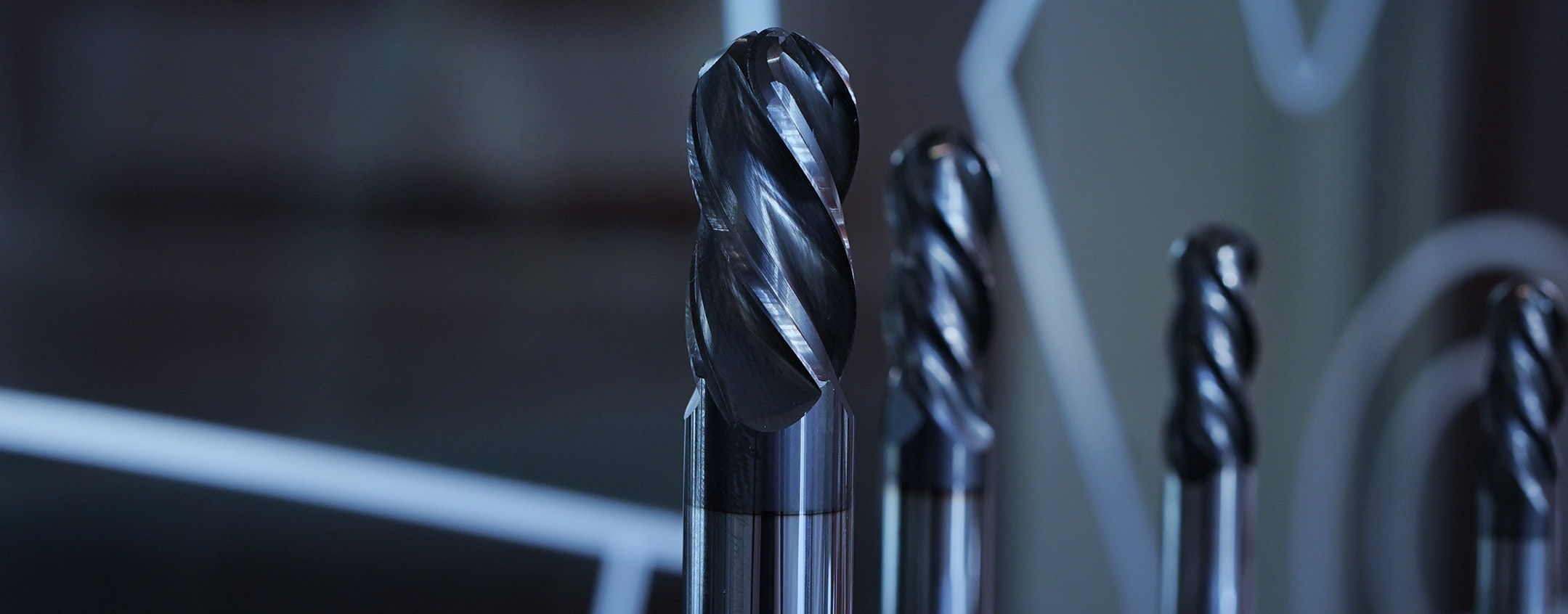
Diamond coated tools provide enhanced wear resistance and increased tool life for machining a wide range of abrasive tough materials like aluminium and composites. Unlike PCD tools, which use solid diamond cutting edges, diamond-coated tools feature a thin diamond layer of particles deposited onto a carbide substrate, making them a more cost-effective alternative for certain applications.
While they don’t provide as long a tool life as PCD tools, they still offer superior performance compared to uncoated carbide tools. Diamond tooling is ideal for low to medium-volume production, offering a lower initial investment than PCD. However, for high-volume machining, Polycrystalline diamond compacts often provide a lower cost per part due to the extended tool life.
Diamond-coated tools offer a lower initial investment than PCD while providing greater wear resistance than carbide alloy. This makes them ideal for low to medium-volume machining, prototyping, or applications where PCD’s extended tool life isn’t essential. However, while coated diamond tools have a cheaper upfront cost, their shorter lifespan means they typically result in a higher cost per part compared to PCD. For high-volume production, PCD (Polycrystalline diamond) often provide better long-term value. Diamond Coated tools are best suited for applications where abrasive non-metallic materials need abrasion resistance, but the cost of full PCD tools isn’t justifiable for the production scale. Processing costs and tooling cost must be factored into decision-making.
Diamond-coated tools are designed for machining applicable materials where abrasion resistance and edge retention are key. They are commonly used for:
These tools provide longer tool life than uncoated carbide, making them a cost-effective solution for composite applications. They offer a balance between performance and cos. The advantages of diamond also contribute to a smoother finish and reduced wear on the tool. Technology for diamond coating plays a key role in these benefits.
Diamond-coated tools are widely used in industries that require high-performance diamond turning tools. Diamond-coated tools are a versatile option for cost-conscious manufacturers working with highly abrasive materials.
Used for machining aluminium components, CFRP fuselage structures, and composite airframe parts, providing excellent wear resistance and precision.
Essential for machining lightweight aluminium engine components, electric vehicle battery housings, and composite parts. Ideal for low-volume production or prototype work where PCD tooling may not be necessary.
These tools excel in high-abrasion processes where a smooth milling cutter is needed for grinding applications and milling operations.
Used in applications requiring high precision and durability for abrasive processes.
Exactaform specialises in both bespoke and standard diamond coated tools, delivering precision and durability for machining. Our quality diamond cutting tools improve surface finish and efficiency. We also provide custom diamond cutting tools tailored to application requirements.
With 45 years of expertise in diamond coated tools, Exactaform delivers high-performance Diamond Coated End Mills and tools for precision machining. Our technical teams ensure accurate machining processes and accurate machine tool selection for superior results. We also help manufacturers reduce machine down time by providing durable tooling solutions.